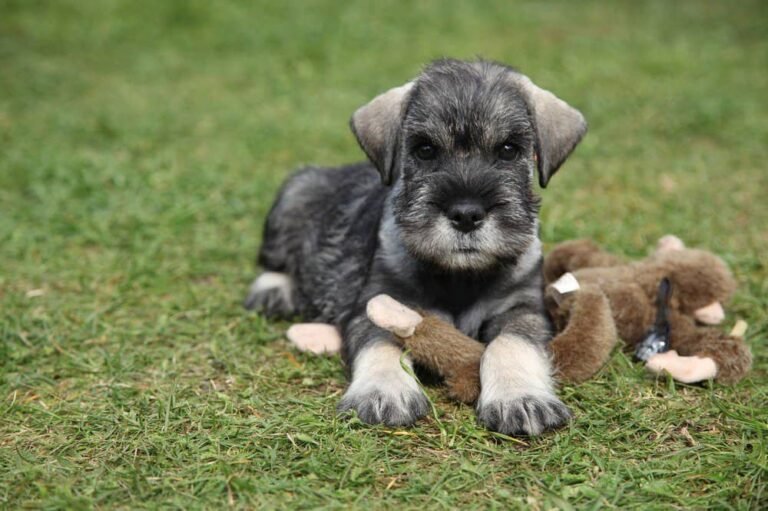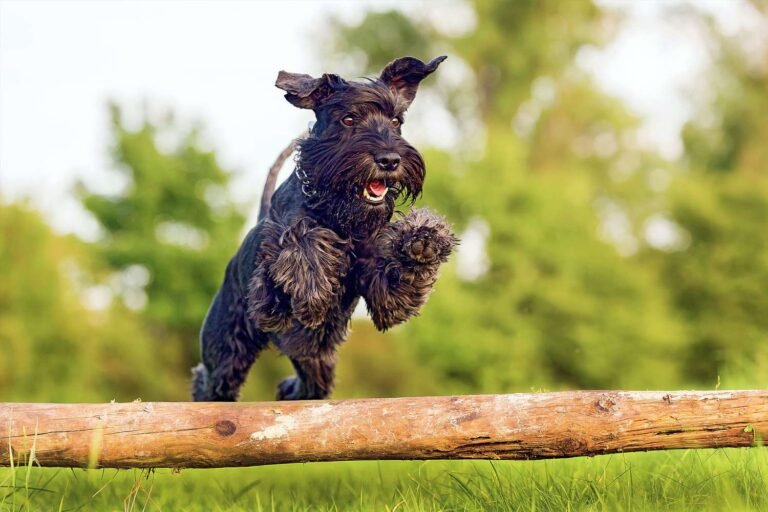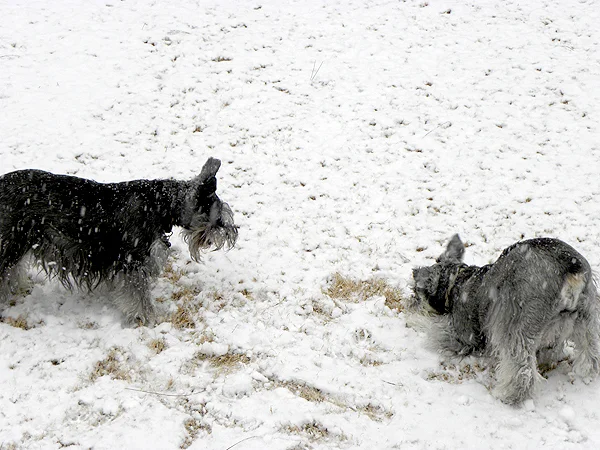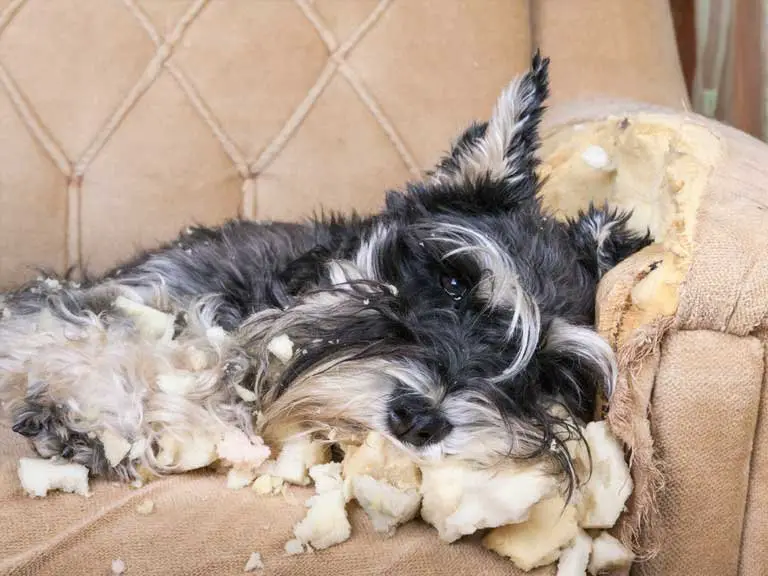How to Stop My Schnauzer from Biting
The spirited Schnauzer, with its bearded charm and keen intelligence, is a beloved breed. Yet, some Schnauzer owners grapple with a challenge: the biting tendency of their furry friend. If you’ve ever thought, “How to stop my Schnauzer from biting?”, this comprehensive guide will equip you with the knowledge and tools you need.
Why Does My Schnauzer Bite?
Biting can be a cause of concern for Schnauzer owners. To properly address this behavior, understanding its root cause is paramount.
The Puppy Phase:
During their early months, puppies experience various changes that can induce biting.
- Teething: Just as with human infants, Schnauzer puppies undergo teething. This phase can be particularly uncomfortable for them, making them seek relief by chewing and biting on objects, including human hands.
- Exploration: Young Schnauzers are naturally curious, seeking to understand their world. They often use their mouths as a tool for exploration, testing different textures and items to learn more about their surroundings.
Guarding Instinct:
Schnauzers are known for their loyal and protective nature. They have a deep-rooted guarding instinct. If they perceive someone or something as a potential threat to their family or territory, their response might escalate to aggressive tendencies, including biting.
Attention Seeking:
Sometimes, Schnauzers learn that biting can earn them instant attention, especially if it has garnered reactions in the past. They might resort to this behavior to communicate their needs or simply to play.
Medical Issues:
Lastly, it’s essential to consider the possibility of health issues. If your Schnauzer suddenly develops a biting habit, pain or some other form of physical discomfort might be the trigger. Just as humans might become irritable when in pain, dogs might bite to convey their distress. Regular vet check-ups can help identify and address any such underlying health concerns.
Effective Techniques to Curb Biting
Biting is a common behavior in many dog breeds, including Schnauzers. However, with the right approach, you can ensure that it doesn’t become a recurring issue.
Training and Socialization:
Training and socialization are essential components in shaping your Schnauzer’s behavior.
- Early Training: The saying “start them young” holds true for Schnauzers. By commencing training as early as possible, you set a foundation for good behaviors, making it less likely for biting tendencies to take hold.
- Socialization: Introducing your Schnauzer to varied environments, different animals, and diverse groups of people can play a pivotal role in their development. Such exposure diminishes the chances of fear-induced biting as the dog becomes familiar and comfortable with a wide range of stimuli.
Use of Commands:
Commands serve as a communication tool between you and your pet. By teaching simple but firm commands like “no” or “stop”, you’re setting clear boundaries. Over time, with consistency and repetition, your Schnauzer will associate these commands with halting unwanted behaviors, including biting.
Distraction and Redirection:
Being proactive can also help curb biting tendencies. If you observe your Schnauzer gearing up to bite, pre-emptive actions can be effective.
- Offering them an alternative like a chewable toy can redirect their biting urge towards a more acceptable outlet.
- Engaging your Schnauzer in a different activity or an impromptu training session can also serve as a useful distraction, diverting their attention and energy away from biting.
When Biting Occurs: Immediate Responses
Addressing biting incidents promptly and effectively is essential for teaching your Schnauzer that such behavior is unacceptable. Here’s a closer look at the steps you can take when faced with this challenge.
Stay Calm:
Your immediate reaction plays a pivotal role in shaping your Schnauzer’s behavior. It’s natural to feel alarmed or irritated when bitten, but reacting aggressively or loudly can exacerbate the situation. Your pet might misinterpret the aggression as a play or become more defensive. Instead, always maintain a composed demeanor, showing your Schnauzer that you are in control without resorting to aggression.
Time-Outs:
Time-outs can be an effective behavioral tool. If your Schnauzer bites, consider leading them to a quiet space where they can calm down away from stimuli. This brief isolation period serves two purposes: it gives your pet a chance to relax and reflect, and it also reinforces the idea that biting leads to temporary separation from the family or fun activities.
Consistency:
One of the key elements in curbing any unwanted behavior is consistency. Dogs, like children, thrive on predictable patterns. If you change your reactions every time your Schnauzer bites, it can create confusion. Ensure that every family member or person interacting with your Schnauzer responds to biting incidents in the same manner. This consistent approach helps your Schnauzer quickly grasp that the behavior is always unacceptable, regardless of the circumstances or the person involved.
Frequently Asked Questions
- Are Schnauzers naturally aggressive?No, Schnauzers are not naturally aggressive. However, like all breeds, they can develop aggressive tendencies due to various factors.
- Can older Schnauzers be trained not to bite?Yes, while it’s easier to train puppies, older Schnauzers can also learn to stop biting with consistent training and patience.
- How long will it take to train my Schnauzer not to bite?The duration varies. Some dogs might need a few weeks, while others could require months of consistent training.
- Should I use muzzles to stop my Schnauzer from biting?Muzzles can be a temporary solution in specific situations, but they don’t address the underlying issue. It’s better to understand the cause and work on training.
- Is it normal for my Schnauzer puppy to bite a lot?Yes, puppies, irrespective of the breed, tend to bite due to teething and exploration. However, it’s essential to guide them towards appropriate biting (like toys) and away from inappropriate biting (like hands).
Conclusion:
Tackling the question, “How to stop my Schnauzer from biting?” requires understanding, patience, and consistent effort. By identifying the root cause and employing targeted strategies, you can enjoy a harmonious relationship with your Schnauzer, free from unwanted nips and bites.








